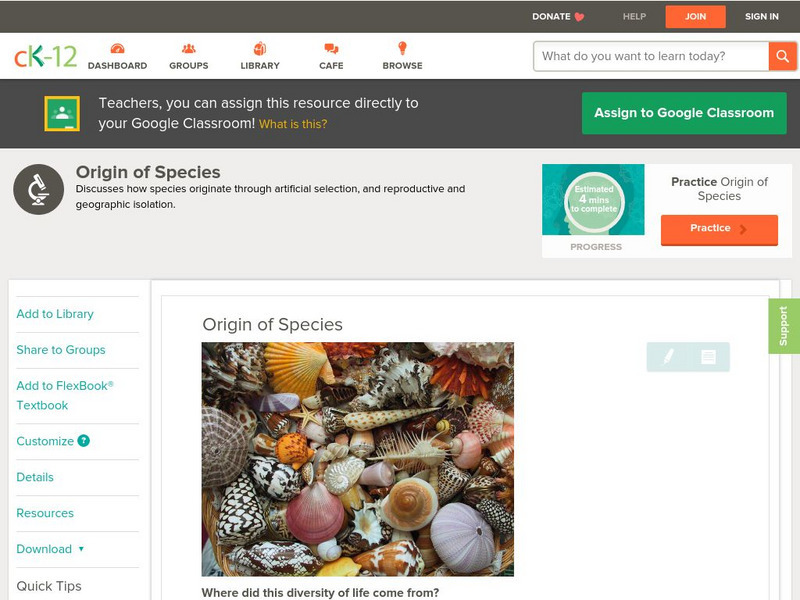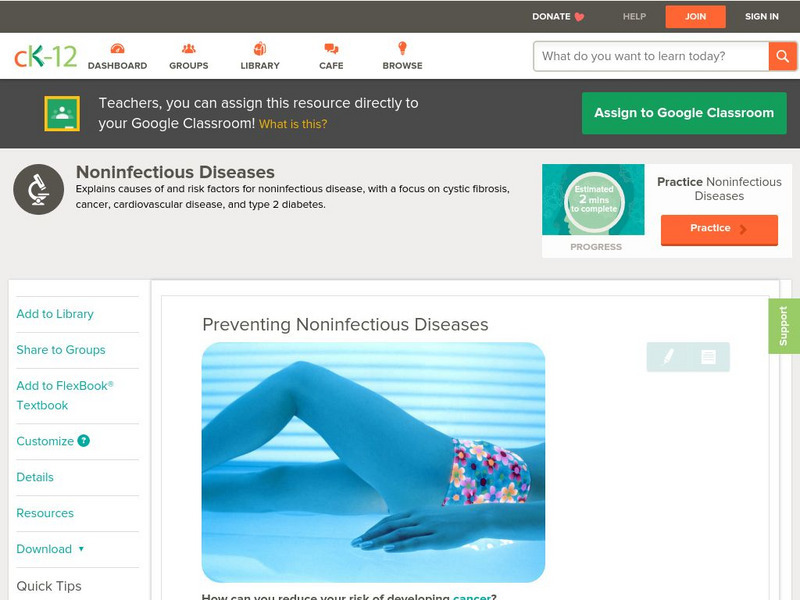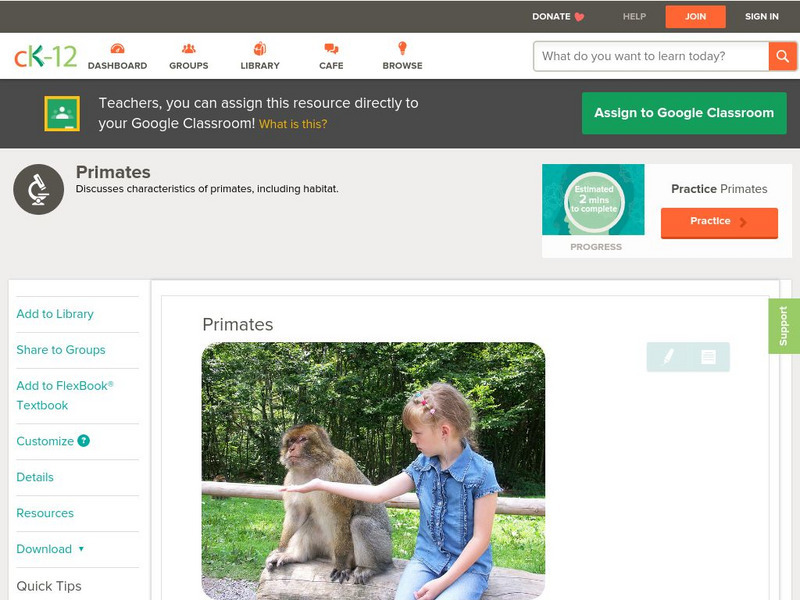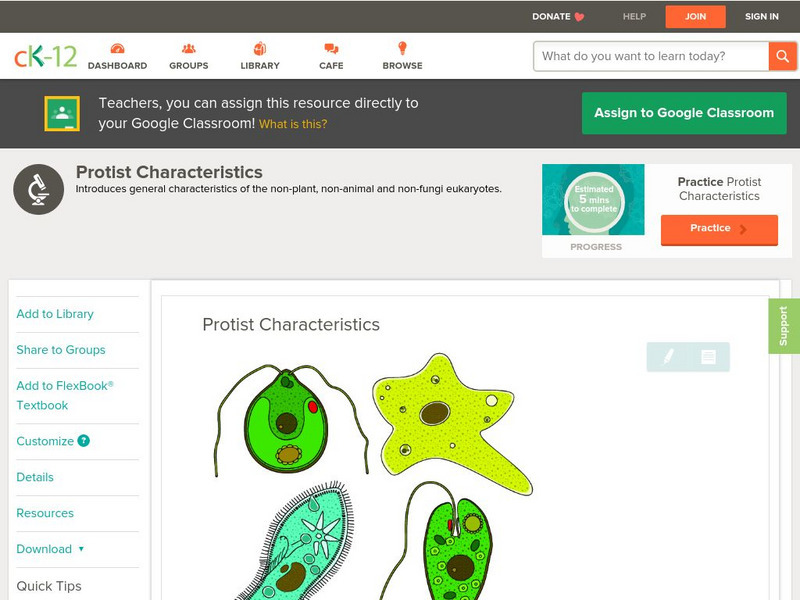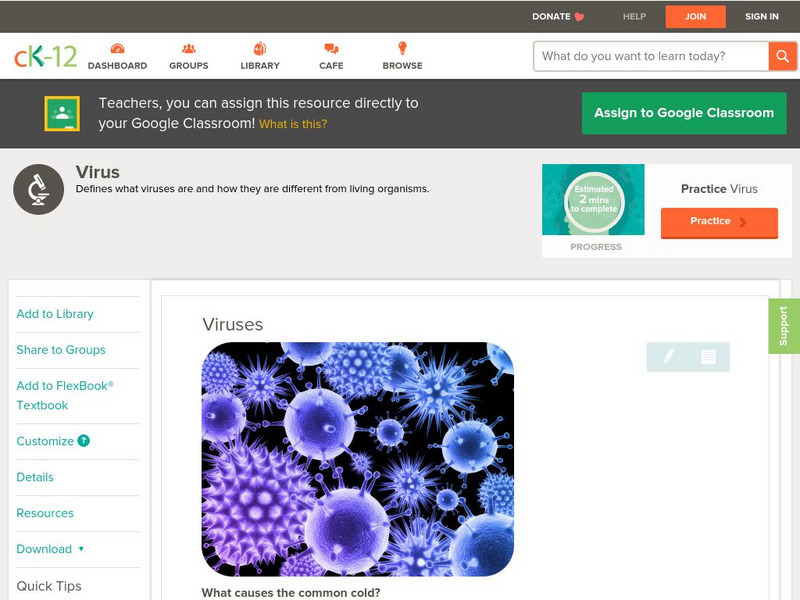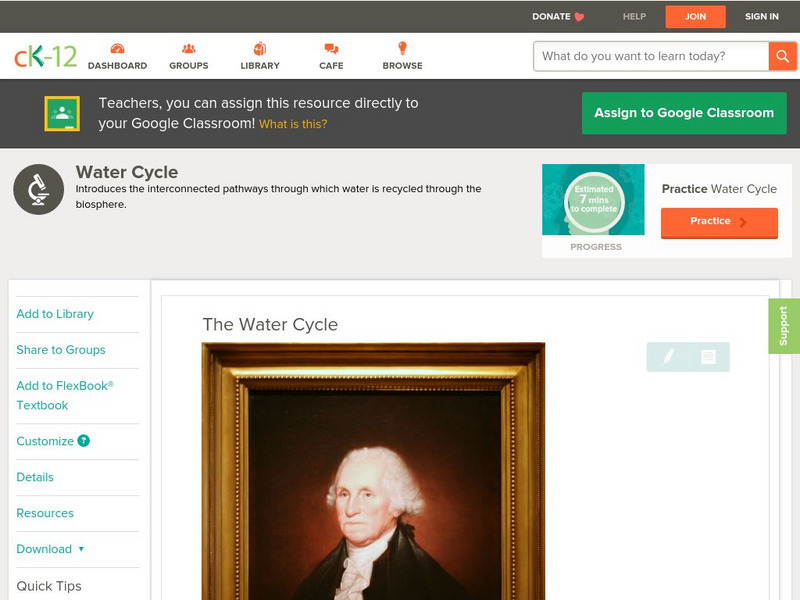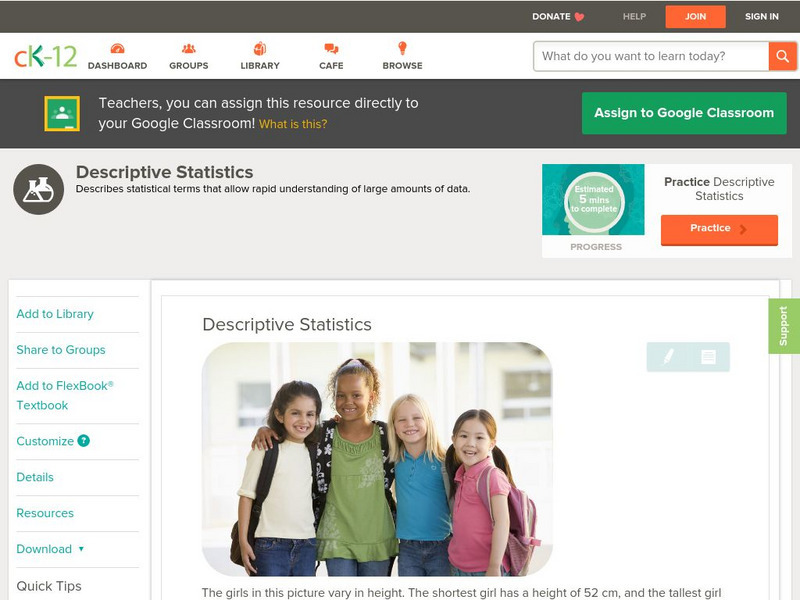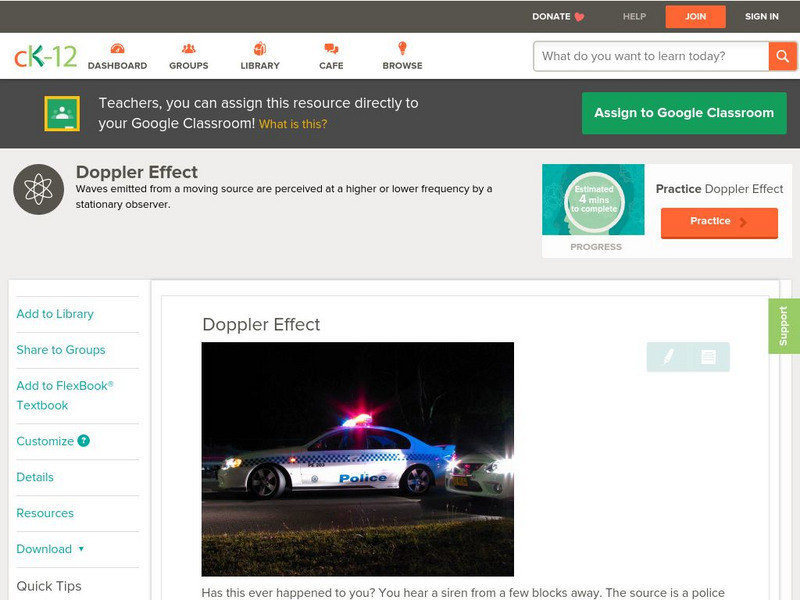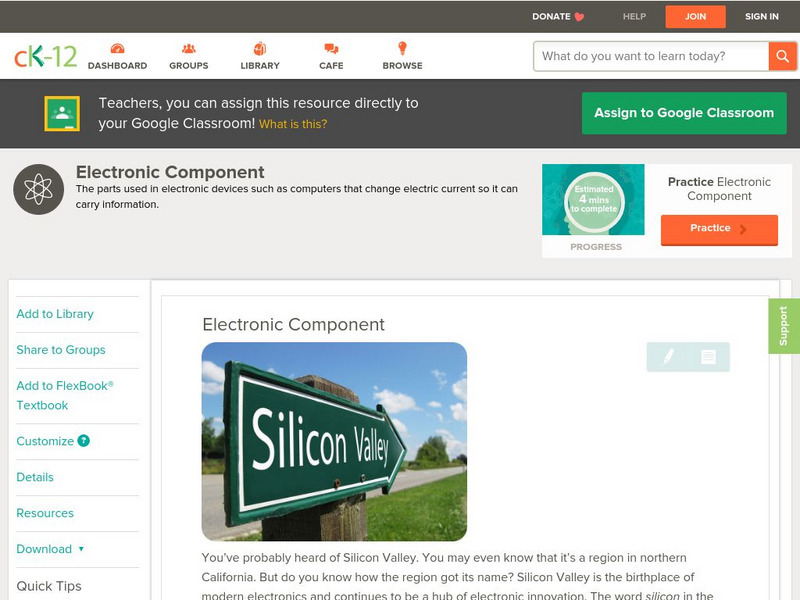Hi, what do you want to do?
CK-12 Foundation
Ck 12: Life Science: Nonvascular Plants
[Free Registration/Login may be required to access all resource tools.] Nonvascular seedless plants lack vascular tissue and they do not have true roots, stems, or leaves, but they can have stem-like and root-like structures. These...
CK-12 Foundation
Ck 12: Life Science: Origin of Species
[Free Registration/Login may be required to access all resource tools.] The creation of a new species is called speciation. Most new species develop naturally. But humans have also artificially created new breeds and species for...
CK-12 Foundation
Ck 12: Life Science: Pathogens
[Free Registration/Login may be required to access all resource tools.] Has this ever happened to you? A student sitting next to you in class has a cold. The other student is coughing and sneezing, but you feel fine. Two days later, you...
CK-12 Foundation
Ck 12: Life Science: Plant Like Protists
[Free Registration/Login may be required to access all resource tools.] Plant-like protists are known as algae. They are a large and diverse group. Plant-like protists are autotrophs. This means that they produce their own food. They...
CK-12 Foundation
Ck 12: Life Science: Pregnancy and Childbirth
[Free Registration/Login may be required to access all resource tools.] While a woman is pregnant, the developing baby may be called an embryo or a fetus. The embryo stage lasts until the end of the 8th week after fertilization. After...
CK-12 Foundation
Ck 12: Life Science: Preventing Noninfectious Diseases
[Free Registration/Login may be required to access all resource tools.] Most allergies can be prevented by avoiding the substances that cause them. For example, you can avoid pollens by staying indoors as much as possible. You can learn...
CK-12 Foundation
Ck 12: Life Science: Primates
[Free Registration/Login may be required to access all resource tools.] If primates are mammals, what makes them seem so different from most mammals? Primates, including humans, have several unique features. Some adaptations give...
CK-12 Foundation
Ck 12: Life Science: Protist Characteristics
[Free Registration/Login may be required to access all resource tools.] Protists are eukaryotes, which means their cells have a nucleus and other membrane-bound organelles. Most protists are single-celled. Other than these features, they...
CK-12 Foundation
Ck 12: Life Science: Protists Nutrition
[Free Registration/Login may be required to access all resource tools.] The cells of protists need to perform all of the functions that other cells do, such as grow and reproduce, maintain homeostasis, and obtain energy. They also need...
CK-12 Foundation
Ck 12: Life Science: Reptiles
[Free Registration/Login may be required to access all resource tools.] What reptiles can you name? Snakes, alligators, and crocodiles are all reptiles. Modern reptiles live on every continent except Antarctica. They range in size from...
CK-12 Foundation
Ck 12: Life Science: Seasonal Changes in Plants
[Free Registration/Login may be required to access all resource tools.] Have you seen the leaves of plants change colors? During what time of year does this happen? What causes it to happen? Plants can sense changes in the seasons....
CK-12 Foundation
Ck 12: Life Science: Social Behavior of Animals
[Free Registration/Login may be required to access all resource tools.] Why is animal communication important? Without it, animals would not be able to live together in groups. Animals that live in groups with other members of their...
CK-12 Foundation
Ck 12: Life Science: Symbiotic Relationships of Fungi
[Free Registration/Login may be required to access all resource tools.] Fungi don't live in isolation. They often interact with other species. In fact, fungi can be dependent on another organism for survival. When two species live close...
CK-12 Foundation
Ck 12: Life Science: Types of Nutrients
[Free Registration/Login may be required to access all resource tools.] Carbohydrates, proteins, and lipids contain energy. When your body digests food, it breaks down the molecules of these nutrients. This releases the energy so your...
CK-12 Foundation
Ck 12: Life Science: Vascular Seedless Plants
[Free Registration/Login may be required to access all resource tools.] Vascular seedless plants have vascular tissue but do not have seeds. Most of the large vascular seedless plants from ancient times are now extinct, but their smaller...
CK-12 Foundation
Ck 12: Life Science: Viruses
[Free Registration/Login may be required to access all resource tools.] We have all heard of viruses. The flu, the common cold, and many other diseases are caused by viruses. But what is a virus? Do you think viruses are living? Which...
CK-12 Foundation
Ck 12: Life Science: Water Cycle
[Free Registration/Login may be required to access all resource tools.] Water and elements like carbon and nitrogen are constantly being recycled through the environment. This process is called a biogeochemical cycle because it involves...
CK-12 Foundation
Ck 12: Physical Science: Alpha Decay
[Free Registration/Login may be required to access all resource tools.] How and why alpha decay occurs, its dangers and how to write a balanced nuclear equation for alpha decay.
CK-12 Foundation
Ck 12: Physical Science: Descriptive Statistics
[Free Registration/Login may be required to access all resource tools.] Explains descriptive statistics (mean, median, mode, range).
CK-12 Foundation
Ck 12: Physical Science: Doppler Effect
[Free Registration/Login may be required to access all resource tools.] Discusses what the Doppler Effect is and how it occurs.
CK-12 Foundation
Ck 12: Physical Science: Electric Resistance
Explains what resistance is and factors that affect it, and how it can be advantageous and disadvantageous. [Free Registration/Login may be required to access all resource tools.]
CK-12 Foundation
Ck 12: Physical Science: Electron Cloud Atomic Model
[Free Registration/Login may be required to access all resource tools.] Features the electron cloud atomic model and atomic orbitals.
CK-12 Foundation
Ck 12: Physical Science: Electronic Component
[Free Registration/Login may be required to access all resource tools.] Overview of electronic components: semiconductors, diodes, transistors, and integrated circuits.
CK-12 Foundation
Ck 12: Physical Science: Electronic Device
[Free Registration/Login may be required to access all resource tools.] Explains what an electronic device is and discusses the computer.
Other popular searches
- Ms Access 2003
- Ms Access 2007
- Ms Access Databases
- Using Ms Access
- Activities Using Ms Access
- Ms Access Lessons Plan
- Activities Ms Access
- Ms Access 2010
- Ms Access 2007 Weather
- Ms Access 2010 Lesson






